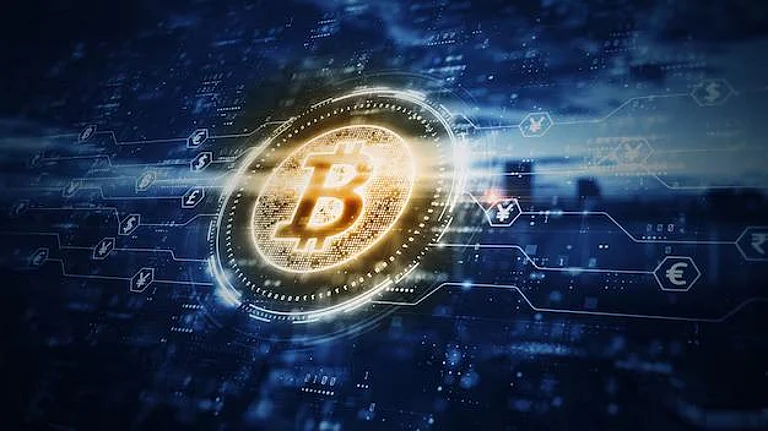Amidst the evolving era of blockchain and cryptocurrencies, smart contracts have been one of the most revolutionary innovations. Popular media stories are prone to highlight cryptocurrencies like Bitcoin or Ethereum, whereas the real application behind most crypto tokens is in the way they are utilized with smart contracts. These self-executing lines of code embedded in blockchain networks are the operational backbone of the decentralized universe.
But what are smart contracts, and how do they enhance the functionality, malleability, and world-relevance of crypto tokens and coins? This article is aimed at de-mystifying that synergy in plain, readable, and informative language.
What Are Smart Contracts?
A smart contract is a computer program self-enforcing digital agreement whose terms are written into lines of code and stored on a blockchain. Unlike traditional contracts, which need to use intermediaries such as banks or lawyers to enforce terms, smart contracts execute automatically when some conditions are met.
They were originally popularized by Ethereum, the blockchain that added a programmable layer to crypto networks. On Ethereum's system, smart contracts exist on the blockchain and can control assets, execute logic, and react to data without central control.
The power of smart contracts lies in their trustless, decentralized nature. In other words, users can make sophisticated transactions with the confidence that rules will be enforced to the letter—nothing more, nothing less—because code will ensure it.
Crypto Tokens and Their Dependence on Smart Contracts
Crypto tokens are units of value that are issued in already existing blockchains. Unlike coins (such as Bitcoin or Ether), which are virtually all digital currency native to a particular blockchain, tokens tend to be created by way of smart contracts. For instance, on Ethereum, tokens are created and managed by way of smart contracts that conform to standards such as ERC-20 or ERC-721.
These tokens could be employed to symbolize all sorts of things: access to a service, the right to vote, ownership of digital currency, or even physical-world goods. It would never work, however, without the logic and automation provided by smart contracts. Smart contracts give crypto tokens their lifeblood, quite literally providing them with the capability to accomplish more than sitting in a digital storehold of value.
Enhancing Utility: What Smart Contracts Are Able to Do for Tokens
Smart contracts significantly increase the utility of crypto tokens. Rather than being inert digital placeholders, tokens become dynamic tools that are able to interface with other decentralized applications (dApps), platforms, and users.
For example, in decentralized finance (DeFi), tokens can be used in lending and borrowing protocols, yield farming, staking, insurance, etc., all of which are governed by smart contracts. Smart contracts govern interest rate calculations, collateral ratios, and liquidation when tokens are deposited by a user into a DeFi platform.
Gaming and non-fungible token (NFT) platforms also demonstrate how smart contracts enhance token utility. In blockchain games, smart contracts are responsible for managing ownership of goods, enforcing conditions of rarity, and enabling cross-platform transfer of assets. Smart contracts would not be possible without them, and the NFT would simply be a collectable image with no functional logic and inter-chain compatibility.
Offering Flexibility: Programmability of Smart Contracts
One of the most defining features of smart contracts is that they are programmable. Smart contracts can be tailored by developers to perform an incredibly wide range of tasks, from simple transfers to highly advanced conditional actions. This makes crypto tokens highly flexible in what they may be used for, governed as, and traded for.
Take governance tokens for instance. Governance tokens often give voters voting power on the modification of protocols most of the time. The native smart contract will tally votes, impose quorum rules, and execute decisions automatically after thresholds are reached. This creates a decentralized mechanism of governance that is secure, transparent, and efficient.
Similarly, in supply chain application, smart contracts are able to track product movement, authenticate, and pay for milestones reached—all with programmable tokens that reflect real-time changes in ownership or status.
Having the ability to adapt smart contract logic to suit specific needs means that tokens can be molded to serve an infinite variety of applications, from legal documents and digital identity to music and property rights.
Interoperability and Cross-Chain Opportunities
Smart contracts are also being more and more applied in cross-chain interoperability, enabling tokens to move or act across blockchains. Wrapped tokens as well as bridges are the typical mechanisms employed to do so.
For instance, if a user wants to bring Bitcoin on the network of Ethereum, Bitcoin is locked into a custodial contract by virtue of a wrapping mechanism that is handled by smart contracts. A token, named Wrapped BTC, is minted on Ethereum equivalent to the wrapped token. The wrapped token can now be utilized by Ethereum-based dApps, giving Bitcoin the convenience it inherently does not have.
Smart contracts make it possible for tokens to be used beyond their native blocks, increasing liquidity, usage, and access for the wider blockchain community.
Security, Risks, and Best Practices
While smart contracts unlock huge possibilities, they are by no means risk-free. Buggy code, poorly written logic, or purposefully exploitable flaws can lead to large amounts of monetary loss. Unlike software, once deployed, smart contracts are generally immutable, with mistakes being difficult to fix.
To counter these problems, developers have begun using best practices such as rigorous testing, formal verification, and third-party audits before deploying smart contracts managing high-value tokens. A few blockchains also support upgradable smart contracts in order to future-proof without compromising on decentralization.
Still, end users engaging in token-based platforms must always be cognizant of the associated risks and ensure they're dealing with audited and trusted protocols.
Real-Life Applications and the Way Forward
The union of smart contracts and crypto tokens is already transforming industries. In real estate, tokenized ownership of property under the management of smart contracts can make investment and sharing of rental income easier. In medicine, tokens of patient data offer confidentiality and access managed by programmable permissions. Even donations to charity are being transformed by smart contracts that enable transparency and accountability.
As technology evolves and regulatory frameworks shift, we can expect that smart contracts will increasingly be part of our daily digital and physical existence. The convergence of programmable logic and cryptographic security can bring about a world where transactions, agreements, and interactions are not only more efficient but also more equitable.
Smart contracts are not lines of code—neither are they the technology that enables crypto tokens to function, grow, and provide tangible value in the real world. From making DeFi and gaming more practical to offering unprecedented governance and interoperability flexibility, smart contracts take tokens beyond the digital currency—they turn them into innovation-driven instruments.
Understanding this connection is crucial for anyone entering the world of blockchain, whether investor, builder, or curious student. The potential of decentralized technology is not in the coins it creates, but in the smart systems that give them life.





















